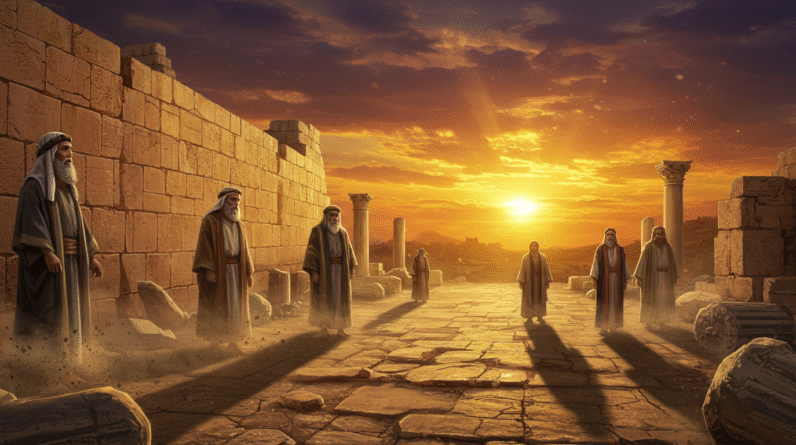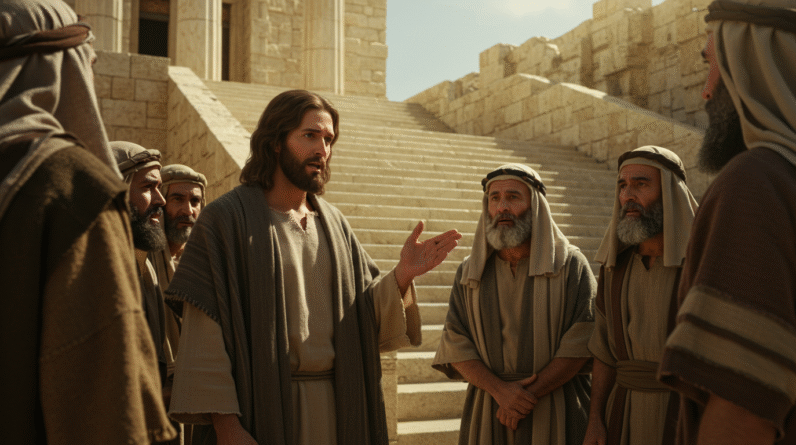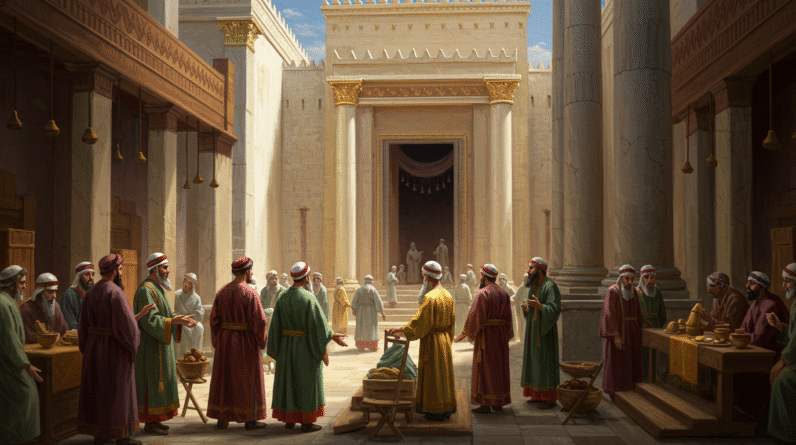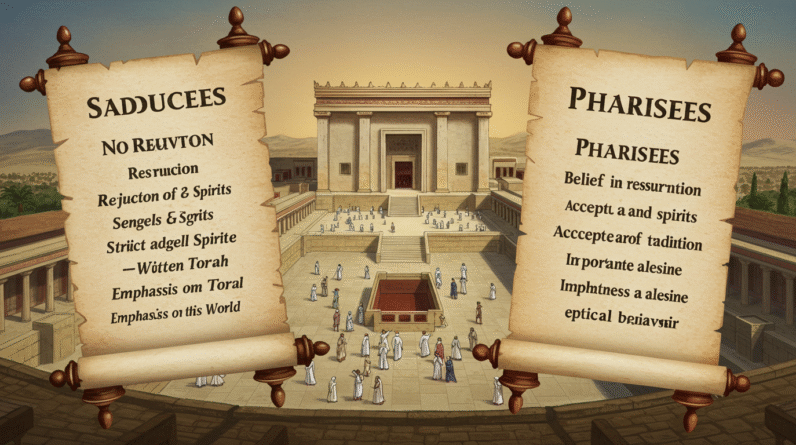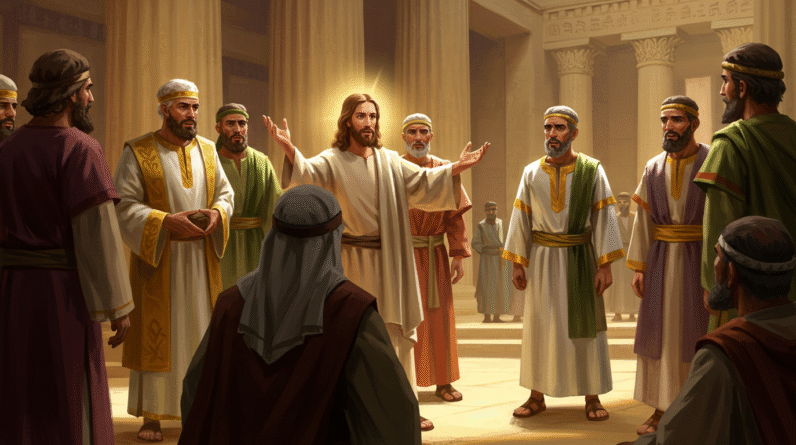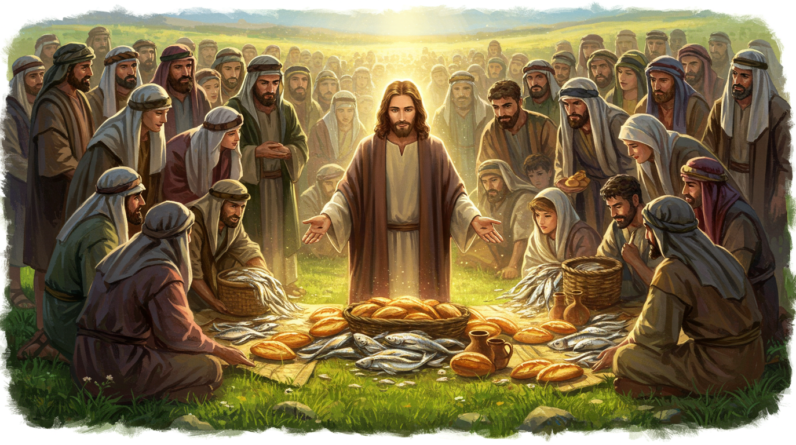Explore the profound tales of martyrs in Revelation 6:9-11. Discover their enduring faith and justice, offering timeless lessons for today’s world in this engaging post.
The Martyrs In Revelation – Revelation 6:9-11
The book of Revelation, with its vivid imagery and profound symbolism, unveils the plight and triumph of figures who stand firm in their faith. Among them, the martyrs hold a significant place. These individuals, having faced persecution and suffering for their unwavering commitment to their beliefs, are remembered and immortalized in Revelation 6:9-11. Their narratives provide compelling insights into endurance, justice, and the divine promise for believers, offering a rich tapestry of lessons applicable to the complexities of modern life.

Introduction to the Martyrs in Revelation
Imagine a courtroom scene where the cries for justice echo powerfully through the heavens. This imagery captures the attention of anyone curious about faith and justice, especially in the context of Revelation. The martyrs, who appear beneath the altar in this book, speak audibly of the sacrifice required by unwavering faith. Revelation unfolds a narrative not just of future events but of the eternal struggle between good and evil, showcasing how the martyrs’ voices resonate as both a testament to their steadfastness and an appeal for divine vindication. Their significance transcends time, as they represent the ultimate act of loyalty to God, offering profound lessons about faith under pressure.
Their Story in Revelation
The martyrs in Revelation embody the very heart of those who have sacrificed their lives for the sake of the Gospel. Revelation 6 brings us to a poignant moment where, with the opening of the fifth seal, the souls of these martyrs implore God beneath the altar. The imagery is striking—highlighting the gravity of their sacrifice and the depth of their commitment. These souls cry out, “How long, Sovereign Lord, holy and true, until you judge the inhabitants of the earth and avenge our blood?” (Revelation 6:10). It becomes apparent that these individuals endured immense suffering solely because of their testimony and allegiance to God’s Word. The context suggests a period of persecution, perhaps reflective of the first-century church and its tumultuous relationship with the Roman Empire.
The narrative delves into the essence of patience and divine timing. These martyrs are offered white robes—symbols of their purity and righteousness—in a prophetic gesture reminding us that justice, although delayed, is inevitable. They are told to wait a little longer until the number of their brethren destined for martyrdom is complete. It’s an acknowledgment of both their enduring faith and a reminder of the sacrifices yet to come. This vivid portrait not only encapsulates the tension between awaiting justice and enduring suffering but also underscores the promise of vindication and glory for the faithful.
Lessons from the Martyrs’ Story
The narrative of the martyrs in Revelation serves as a profound meditation on the nature of faith amidst adversity. From their plight, readers can derive several poignant lessons that resonate deeply within both personal and communal contexts today.
One powerful lesson is the virtue of patient endurance. The martyrs’ cry for justice reverberates with the tension between earthly suffering and divine resolution. Their patience, though tested, is emblematic of a faith rooted in the assurance of God’s ultimate justice. In a world quick to seek retribution, their story compels us to consider the value of resilience in the face of trials and the importance of trusting in a higher plan beyond our immediate understanding.
Secondly, the martyrs reflect the transformative power of commitment to one’s principles. Their unwavering stance, even to the point of death, highlights a paradigm of conviction that transcends temporal struggles. Their lives reflect unwavering devotion and allegiance to a truth larger than themselves—a reminder of the potential impact of living a life committed to one’s beliefs, regardless of the cost.
Lastly, the martyrs’ tale echoes the notion that true justice belongs to God. Their appeal to divine justice serves as a reminder that, despite the seeming triumph of evil, God’s judgment is just and assured. It challenges contemporary readers to relinquish the need for immediate vindication and to instead rest in the certainty of divine justice unfolding within its perfect time.
Connection to Today’s World
In today’s world, where voices are often drowned amid the noise of injustice, the martyrs’ story holds profound relevance. Modern society faces numerous challenges, from systemic oppression to personal trials of faith, prompting individuals to seek solace and direction in the narratives of old. The motif of waiting for justice, as seen in Revelation, resonates with movements advocating for truth and equity—a vivid reflection of humanity’s persistent quest for fair treatment and acknowledgment.
Consider, for instance, those who stand for truth in challenging environments, enduring ridicule or persecution for their beliefs. The martyrs remind us that such struggles, though daunting, are not in vain. Their legacy inspires courage and resilience among those confronting injustice, whether in the public sphere or within the confines of personal conscience.
Moreover, for communities who find themselves marginalized or oppressed, the story of these martyrs becomes a source of hope and fortitude. Their ultimate vindication by God is a promise that no struggle for righteousness goes unnoticed and that justice, though delayed, will be delivered in its appointed time. This serves as a poignant reminder that faith, when deeply rooted, has the power to transcend the immediate and unite communities in their collective pursuit of a just reality.

Key Bible Verse
A verse that encapsulates the journey of the martyrs is Revelation 6:11, which states, “Then each of them was given a white robe, and they were told to wait a little longer until the number of their fellow servants and brothers who were to be killed as they had been was completed” (Revelation 6:11). This verse is significant as it reflects the duality of divine comfort and continued anticipation. The gifting of white robes signifies their purity and vindication, acknowledging their sacrifices while also affirming God’s ultimate justice. It highlights the already and not yet of the Kingdom—offering comfort now with a promise of future fulfillment in the completion of God’s plan.
Thought-Provoking Question
Reflecting on the story of the martyrs, you might consider this question: When confronted with injustice or suffering for your faith, do you find strength in patience and the promise of divine justice, as the martyrs did? How can their story encourage you to remain steadfast in your convictions, even when immediate resolution appears elusive?
Additional Insights
Historical/Cultural Context
Understanding the historical backdrop of Revelation enriches our comprehension of the martyrs’ story. During the time of John’s writing, Christians were subject to intense persecution under Roman rule. The symbolic nature of Revelation served both as encouragement and warning, offering hope for ultimate victory amidst brutal repression. The imagery of the martyrs and their cry for justice resonated deeply with an audience familiar with sacrifice and the longing for redemption.
Comparison with Other Characters
The story of the martyrs in Revelation parallels those of other biblical figures who stood firm in their faith. Consider Stephen, the first Christian martyr, whose unyielding testimony in Acts 7:54-60 echoes the same conviction and assurance of justice seen in Revelation. Both narratives highlight the power of faith and the promise of exaltation through divine justice.
Prayer
Let their story inspire this prayer: “God of justice and mercy, grant us the resilience and courage that marked the lives of the martyrs. May their steadfast faith inspire us amid our trials. Help us to rest in Your divine justice, confident of Your promises. Lead us, like them, in paths of righteousness for Your name’s sake. Amen.”
Rereading their stories can offer profound moments of reflection and meditation. Consider revisiting Revelation 6:9-11 in your quiet times, allowing the text to guide your thoughts and prayers.


